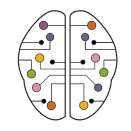MDMA y 5-HTP como suplemento
He leído sobre el uso de alimentos ricos en triptófano (postcarga de MDMA con 5-HTP). Según mis fuentes, esto disminuye los efectos negativos de la MDMA y reduce la neurotoxicidad. ¿Tienes alguna recomendación sobre complementos alimenticios para reducir los efectos tóxicos de la MDMA?
La precarga/postcarga mediante productos de herbolario y/o fármacos en relación con los efectos de la MDMA es una práctica relativamente común (hasta el 40-70% de los consumidores, según algunos estudios) .
El 5-HTP (hidroxitriptófano) o triptófano son las sustancias más utilizadas. El 5-HTP es el precursor de la serotonina, el neurotransmisor supuestamente responsable de los efectos psicológicos del MDMA. La MDMA produce una rápida liberación de una gran cantidad de serotonina en las neuronas.
Sin embargo, también se cree que esta liberación es la causa de los efectos adversos agudos que ocurren entre 24 y 48 horas después del consumo. Esto incluye estado de ánimo deprimido y fatiga, así como posibles efectos neurotóxicos.
Para combatir estos efectos adversos, algunos usuarios recurren a suplementos a base de hierbas o alimentos ricos en triptófano: chocolate, cacahuete o plátanos. Las «fórmulas post-carga» típicas contienen vitamina C, magnesio, ácido alfa lipoico o extracto de té verde. Estas pautas se basan en recomendaciones de foros de Internet o de algunos libros sobre MDMA.
- La precarga (tomar suplementos antes de consumir MDMA) busca potenciar los efectos de la sustancia aumentando teóricamente la cantidad de serotonina disponible.
- La poscarga (tomar suplementos después de consumir MDMA) tiene como objetivo ayudar al cuerpo a recuperarse de los posibles efectos adversos de la MDMA. Neurotoxicidad, estrés oxidativo y agotamiento de ciertos neurotransmisores, relacionados con la depresión y otros efectos negativos.
Curiosamente, la «tristeza de mitad de semana» («mid-week blues«) sólo se ha comunicado en usuarios recreativos, mientras que el uso terapéutico se ha asociado con un » resplandor » en el que los efectos empatógenos residuales permanecen entre 24 y 48 horas más. Esto implica entonces que el «crash» de la MDMA tiene más que ver con aspectos contextuales (falta de sueño, ejercicio físico, mezcla con otras sustancias…) que con su farmacología.
Así, los usuarios que utilicen dosis y frecuencias moderadas, ocasionalmente, programadas y sin demasiados excesos no deberían sufrir efectos adversos psicológicos agudos muy acentuados. Tampoco hay evidencia de que, en los patrones habituales de consumo en humanos, la MDMA produzca daños neurotóxicos irreversibles. Por el contrario, los consumidores habituales son más propensos a sufrir estos efectos.
Por lo tanto, los datos que respaldan el uso de suplementos poscarga se basan en la experiencia subjetiva de los usuarios. No existen ensayos clínicos que hayan evaluado este tipo de estrategia. Y tampoco hay consenso sobre las dosis adecuadas. Algunos autores recomiendan “50 mg de 5-HTP durante 3 días 24 horas después de la última ingesta”. Otros usan dosis de 100 a 300 mg durante 5 a 7 días.
Es poco probable que la ingesta de plátanos, maní o chocolate después de la MDMA tenga consecuencias (aparte de una indigestión si uno se pasa).
Con los datos disponibles no es posible recomendar una guía ni considerar su eficacia. Así, es poco probable que una dieta rica en plátanos, maní y chocolate tenga algún impacto negativo después de tomar MDMA. Pero no se ha demostrado que tenga ningún efecto ni en usuarios moderados (en quienes probablemente sea innecesario) ni en usuarios intensivos (en quienes probablemente sea ineficaz para los fines previstos).

[…] embargo, este efecto disminuye después de tres o cuatro horas para la mayoría de las personas. Algunas personas contrarrestan…